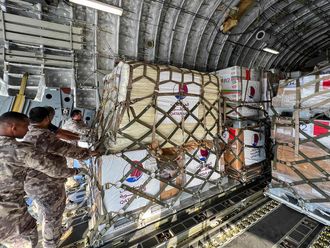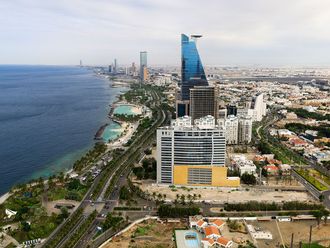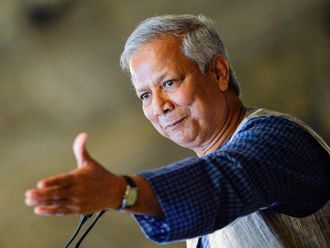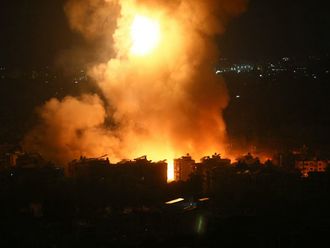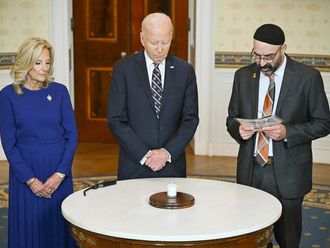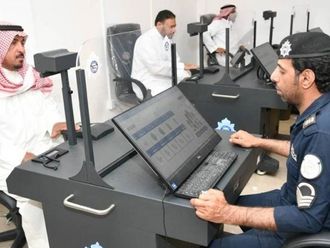Lisbon: Nato has reportedly started the strenuous process of ensuring the success of its summit in the Portuguese capital this week by accepting Turkey's demands not to single out Iran as the source of the threat warranting the setting up of the alliance's new ballistic missile defence system.
Turkey has repeatedly called for not putting its growing regional influence and its relations with Iran at risk by stating in the Lisbon summit communiqué that Tehran’s ballistic missiles are a threat to the alliance.
Anders Fogh Rasmussen, Nato’s secretary-general, has reportedly embraced the Turkish view.
“We do not want to single out particular countries,” he told Financial Times on Wednesday. “More than 30 countries already have – or are aspiring to acquire – missile technologies with a range that can hit Nato territory. So there is no need to single out or name specific countries, because this is an evolving threat.”
The compromise by Nato is expected to encourage Turkey, the only Nato country to share borders with Iran, to support the alliance-wide ballistic missile defence system.
Nato hopes that by addressing Ankara's concerns, it will be able to set up the system in Turkey and ensure that Russia will eventually be part of it.
“If we succeed in establishing co-operation on missile defence,” Rasmussen said, “we can create a common security roof covering all European territory and this would create a common Euro-Atlantic security architecture.”
Russian President Dmitry Medvedev will be present in Lisbon for the council summit to be held on November 20 in a clear indication that Russia wants today to be an active participant in the efforts to redefine European security.
Medvedev is due to take part in the top-level gathering for the first time since the August 2008 war between Russia and Georgia, a source of sour relations between Moscow and the alliance.
According to Russian news agency RIA Novosti, Moscow hopes that the Lisbon summit will finally put an end to the post-Cold War period and will set guidelines toward a strategic partnership between Russia and Nato.
Dmitry Rogozin, Moscow's envoy to Nato, on Wednesday evening said that Russia and Nato finished drafting the main documents for the upcoming meeting of the Russia-Nato Council.
However, close cooperation with Russia is not every Nato member's ambition at the summit. Some former Soviet Union countries and current Nato members have expressed concerns about the extent of the new entente with Russia.
Nato to agree to Turkey's request for ballistic missile defence system
Nato to agree to Turkey's request for ballistic missile defence system



